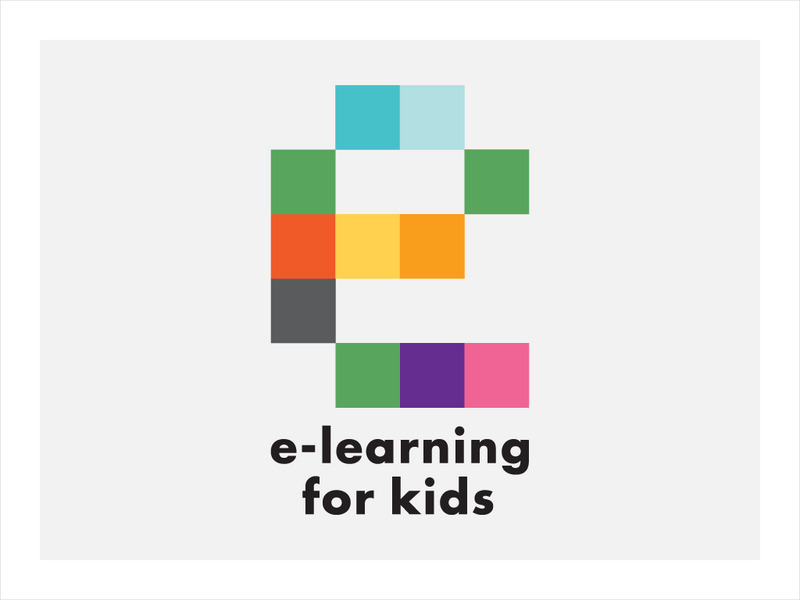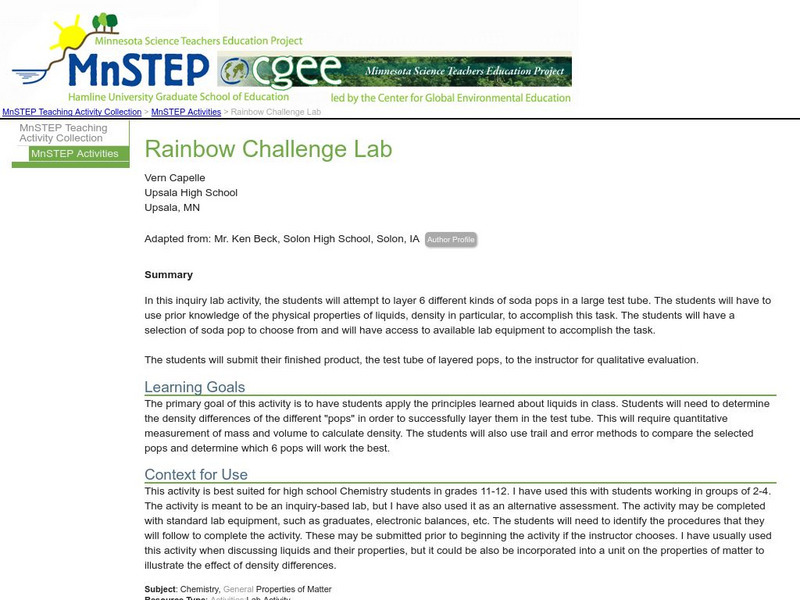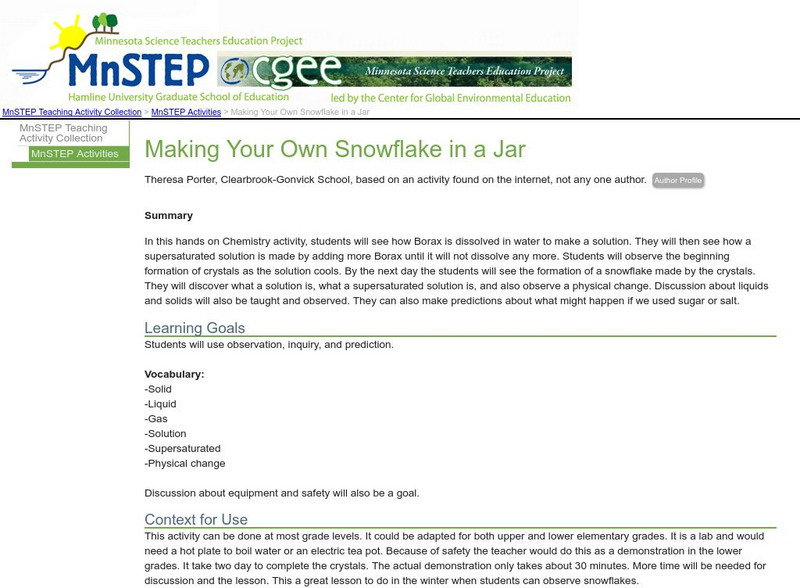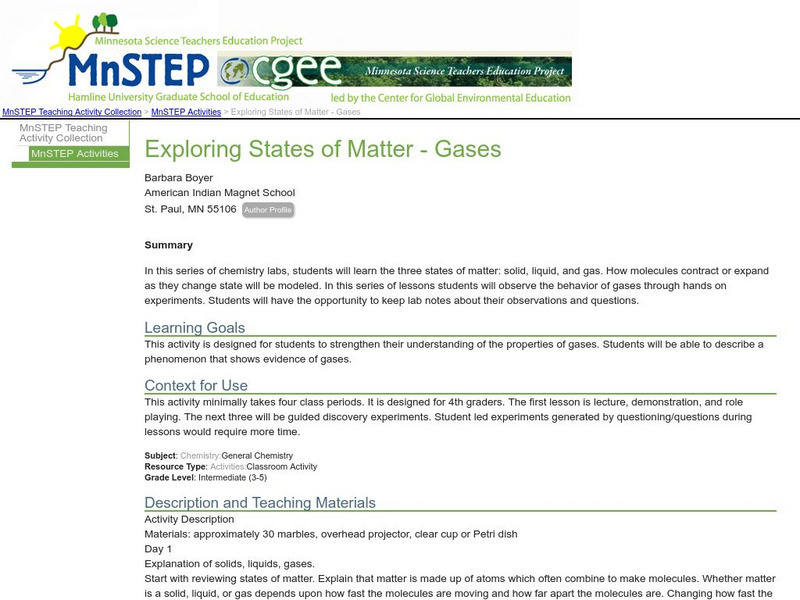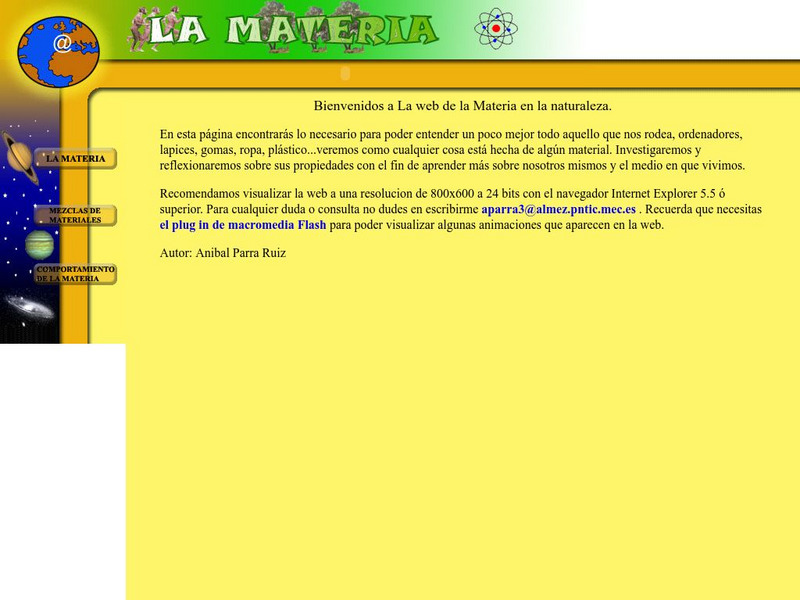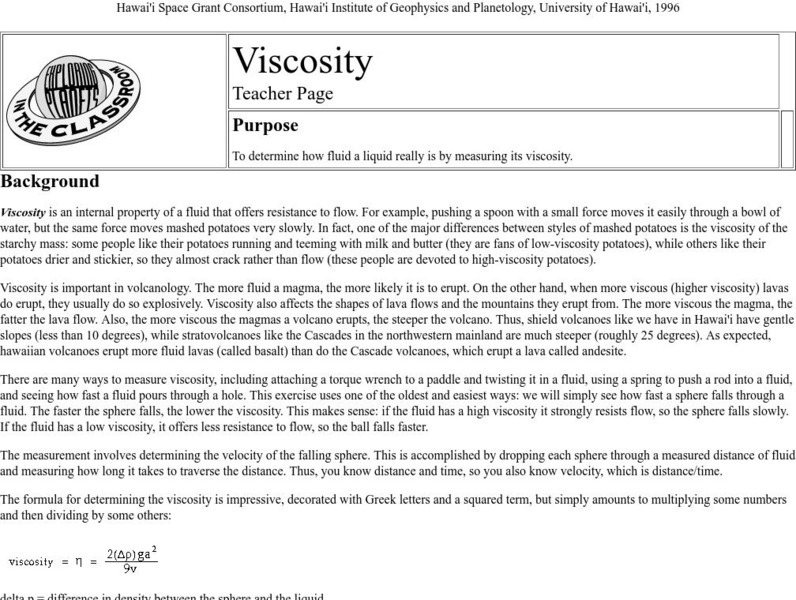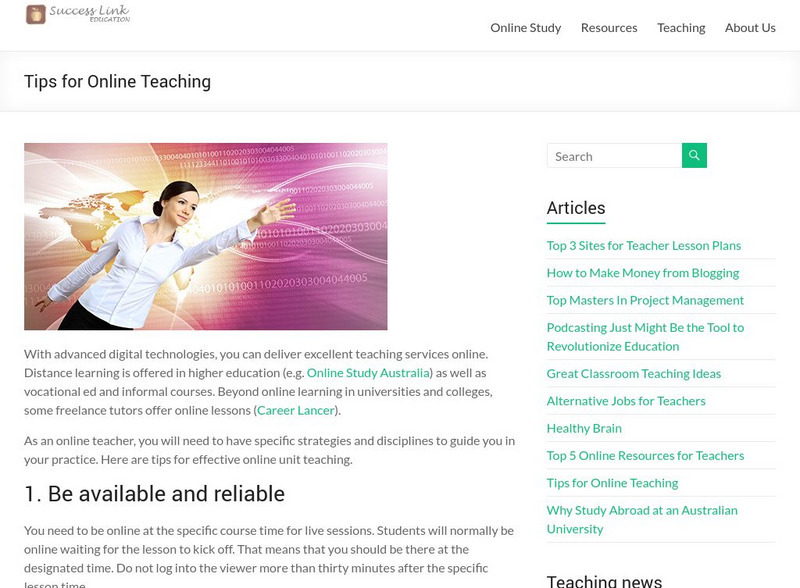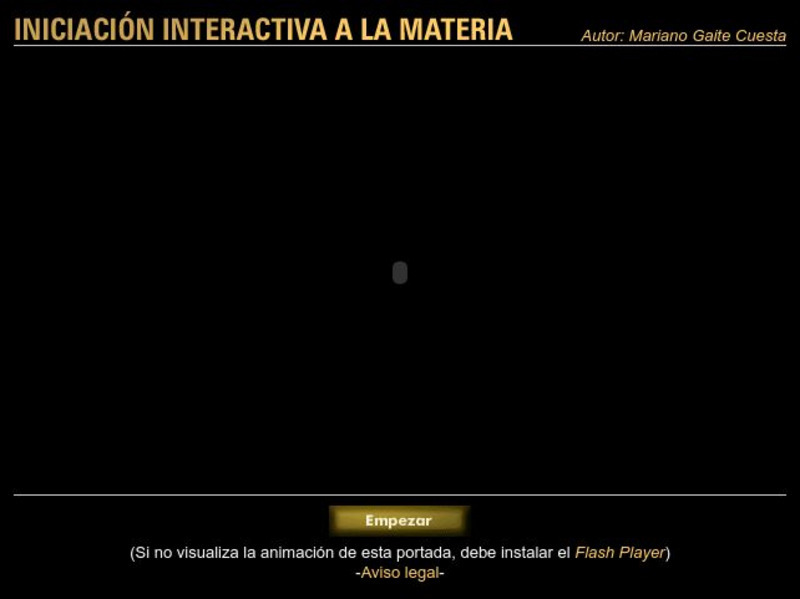Florida State University
Florida State University: Intermolecular Forces: Changes of State
Discusses the changes of state that can occur for the three different types of matter (solids, liquids, and gases) and different types of heat energy that have been defined by scientists.
Exploratorium
Exploratorium: Salt Volcano
By making oil float on water--with the help of other ingredients--students can create a lava-lite effect.
McREL International
Mc Rel International: Timss 2007 Released Items: Science Fourth Grade [Pdf]
A released question from the Trends in International Mathematics and Science Study (TIMSS) assessment about change of states of matter. Also included is a scoring guide for the released question.
E-learning for Kids
E Learning for Kids: Science: Bermuda Triangle: What Is Condensation?
Cindy is at the beach learning a lot about water. Join her to explore the water cycle.
E-learning for Kids
E Learning for Kids: Science: North Sea: Denmark: What Happens When Materials Are Heated or Cooled?
Did you know that water has different states? Learn all about it with Boris in Copenhagen.
E-learning for Kids
E Learning for Kids: Science: Norway: What Is Matter Made Of?
Set sail with Oleif, the Viking. Make his boat move by learning all about matter and particles.
E-learning for Kids
E Learning for Kids: Science: Siberia: How Can Water Change Materials?
Teach the famous warrior, Attila the Hun, about materials we use in this century. Help him learn how some materials dissolve in water.
Science Education Resource Center at Carleton College
Serc: Rainbow Challenge Lab
In this inquiry lab activity, students will attempt to layer 6 different kinds of soda pops in a large test tube using their knowledge of density and other physical properties of liquids.
Science Education Resource Center at Carleton College
Serc: Making Your Own Snowflake in a Jar
For this activity, students will learn about supersaturated solutions. They will observe the beginning formation of crystals as the solution cools and by the next day, the students will see the formation of a snowflake made by the crystals.
Science Education Resource Center at Carleton College
Serc: Freezing and Phase Change: How Do You Make Ice Cream?
Students will be expanding a study of phase changes after experiences with exploration of the three phases of matter. They apply what they have learned through freezing water and create a tasty ice cream treat.
Science Education Resource Center at Carleton College
Serc: Exploring States of Matter Gases
In this series of chemistry labs, students learn about the three states of matter by observing how molecules contract or expand as they change state.
Science Education Resource Center at Carleton College
Serc: Fluid Viscosity
To give students a feeling for both what viscosity values are and how they are measured in the lab, they measure fluid viscosity by dropping ball bearings into graduated cylinders of fluids.
Ministerio de Educación (Spain)
Ministerio De Educacion: La Materia
In this site you can learn and experiment with matter properties and change in behavior. Every theoretical explanation is accompanied by an animation. You will be able to aply the theory to real experiments.
University of Hawai'i
The Hawai`i Space Grant Consortium: Viscosity
This site provides a detailed overview of viscosity, focusing on why viscosity is so important to learn and understand. Content includes the formula for determining the viscosity of a liquid, as well as a break-down of the viscosities of...
Purdue University
Purdue Univ: Gases, Liquids, and Solids
This site has a brief description of the differences in particles in a gas, liquid, and solid. Animated microscopic pictures demonstrate the molecular movement in each state. Information is then summarized in an easy-to-read chart.
Crescent Public Schools
The Internet Science Room: The Kinetic Theory & Phase Change
This tutorial helps students understand the Kinetic Theory, which explains the effects of temperature and pressure on matter as it goes through phase changes.
Wikimedia
Wikipedia: Materia
Explore the concept of matter in this Spanish-language encyclopedia entry. This site features the properties of matter, the Law of Conservation of Matter, and other important features of matter.
Other
Chemguide: Le Chatelier's Principle
This page looks at Le Chatelier's Principle and explains how to apply it to reactions in a state of dynamic equilibrium. It covers changes to the position of equilibrium if you change concentration, pressure or temperature. It also...
Success Link
Success Link: Dry Ice Lab/demonstration How Cool It Is!
A lesson plan using dry ice to show the four states of matter. Included are inquiry-based questions to use as part of the demonstration.
Concord Consortium
Concord Consortium: Molecular Workbench: States of Matter
Change variables in this simulation to see how compression affects different states of matter.
University Corporation for Atmospheric Research
Ucar: Just a Phase: Water as a Solid, Liquid, and Gas
This site helps students construct a model of the arrangement of water molecules when present as solid, liquid or gas. Includes background information, lesson plans, links to standards and assessment ideas.
Careers New Zealand
Kiwi Careers: Metallurgist
This site contains information on becoming a Metallurgist in New Zealand. While some of the information is specific to New Zealand, most of it is uniform to the career.
Ministerio de Educacion, Cultura y Deporte (Spain)
Cnice: Iniciacion Interactiva a La Materia
Matter is anything that has mass and occupies a space. In this site you will find a lot of illustrations and interactive activities dealing with matter.
Other
Science4us: States of Matter
In the States of Matter module, students further explore the concept that anything on earth that has mass and takes up space is matter. This exercise introduces students to solids, liquids and gases, the three most common states of...




![Mc Rel International: Timss 2007 Released Items: Science Fourth Grade [Pdf] Unknown Type Mc Rel International: Timss 2007 Released Items: Science Fourth Grade [Pdf] Unknown Type](https://d15y2dacu3jp90.cloudfront.net/images/attachment_defaults/resource/large/FPO-knovation.png)
